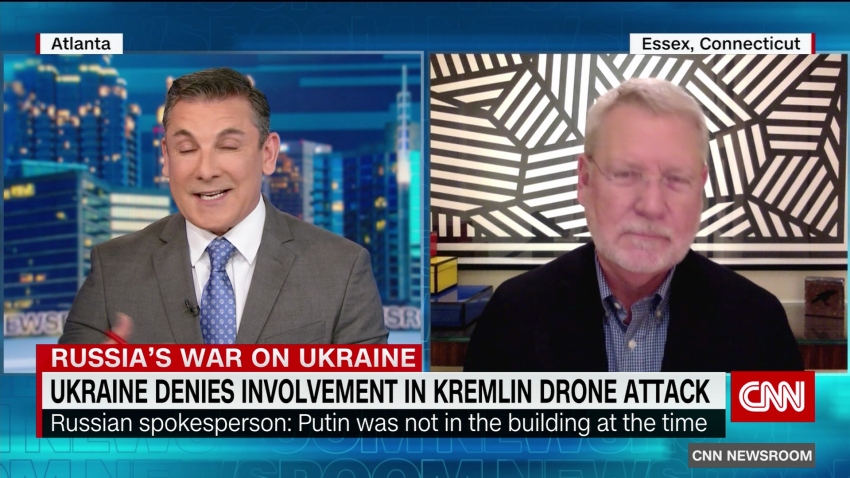Editor’s Note: Sign up to get this weekly column as a newsletter. We’re looking back at the strongest, smartest opinion takes of the week from CNN and other outlets.
King Henry IV comes on stage in a nightgown, wondering why sleep eludes him. He imagines a boy sitting “upon the high and giddy mast” of a ship tossed by wind and waves. Why can that “sea-boy” sleep through the storm while in the “calmest and most stillest” night, a king cannot doze in his bed?
“Uneasy lies the head that wears a crown,” concludes the king in Shakespeare’s play.
The week ended with the crowning of King Charles III — the UK’s first coronation in 70 years. Despite the pageantry, he and many of the world’s other royals have been reduced to figureheads, with today’s great powers mostly ruled by a mix of democratically elected and authoritarian officials.
With that power, comes anxiety — and for some it was a particularly tense week. In Ukraine, leaders prepared for their long-anticipated spring offensive, seeking to drive out the invaders. Russia said that President Vladimir Putin was the intended target of a foiled Ukrainian drone attack on the Kremlin, an allegation Ukraine denied. To add to Putin’s woes, warlord Yevgeny Prighozin threatened to pull his Wagner Group forces out of the killing field of Bakhmut, blaming the Russian military establishment for denying them support. “The dead and wounded — and that’s tens of thousands of men — lie on the conscience of those who did not give us ammunition,” he said.
In the US, President Joe Biden and House Speaker Kevin McCarthy are bracing for a crucial meeting Tuesday as the country stares down the threat of a financially devastating default in just a few weeks. Biden is battling low approval ratings as he seeks reelection in a country that, according to the polls, doesn’t want a rematch between Biden and former President Donald Trump and has a sour view of the economy. The US saw the second largest bank failure in its history last week.
Kremlin targeted?
“The announcement was dramatic and the images breathtaking,” Frida Ghitis observed. “The Kremlin declared that it had come under attack on Wednesday night, targeted by two drones whose objective it claimed was to assassinate Russian President Vladimir Putin, who was unharmed…”
Whatever happened, the Ukraine war is heading toward “a major escalation,” Ghitis added. “The ground is still muddy as the winter snow melts; the temperature is rising. Ukraine has announced repeatedly that it’s planning a large-scale counteroffensive, a push to retake Ukrainian territory captured by the Russian occupiers.”
“Russia is nervous about this new imminent stage of the war. And, frankly, Ukraine’s allies are, as well.”
The war has taken a fearsome toll on children, according to a report Thursday from the Organization for Security and Cooperation in Europe. A “large number” of children – estimated by Ukrainian officials to be from 200,000 to 300,000 – have been “displaced” to Russia or to territory the Russians have occupied in Ukraine.
Writing for CNN Opinion, Kristina Hook and Oleksandra Gaidai noted that “callous crimes against children have resulted in the International Criminal Court issuing arrest warrants for Russia’s so-called ‘Children’s Rights’ Commissioner Maria Lvova-Belova and President Vladimir Putin – only the third-serving president in history to be issued one.”
“While the forced deportations have stunned global observers, from a historical perspective Russia’s policy against Ukrainian civilians is terribly logical and consistent.”
“Moscow has regularly used mass trafficking of citizens, including minors, over two centuries: to punish resisters, weaken community ties that could threaten the state and solve their own demographic problems.”
For more:
Chris Good: The Trump factor hangs over Ukraine
Election ’24
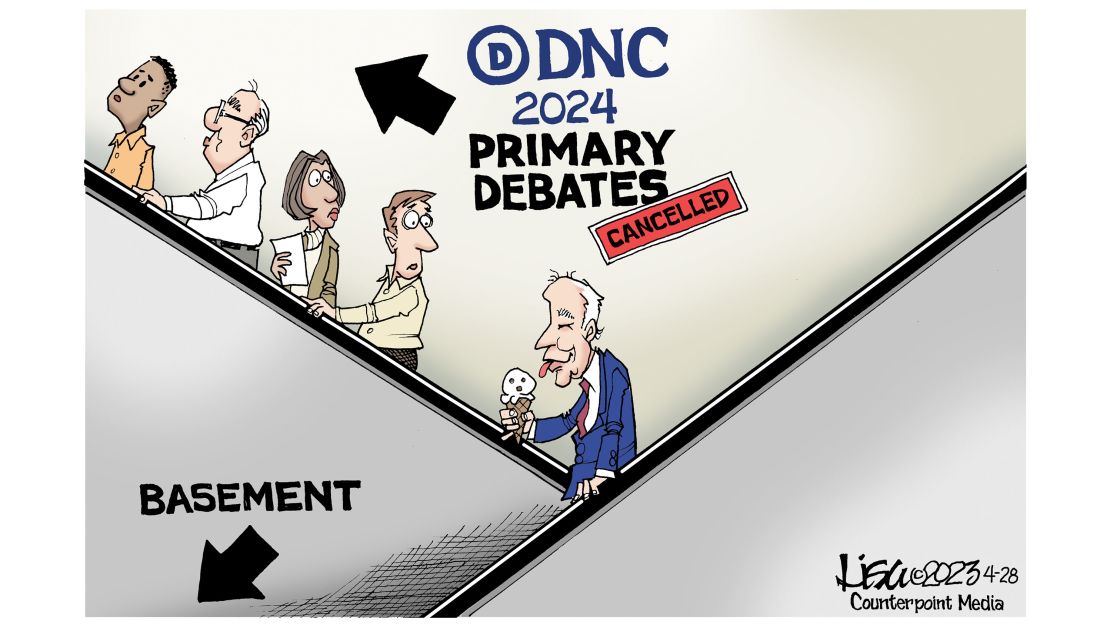
Former Arkansas Gov. Asa Hutchinson was named a US attorney during the Ronald Reagan administration and held high-profile posts in George W. Bush’s administration. Now he is running for the GOP nomination for president and calling for a return to the kind of conservatism that has been in eclipse since Donald Trump won the presidency in 2016.
“Over the last eight years, we — as a party and as a nation — have forgotten the type of individual our forefathers intended the president of the United States of America to be,” he wrote for CNN Opinion. “We have forgotten what it’s like to live under the leadership of a president who looks forward, leads by example, instinctively puts the country before the party and has no issue setting ego aside to get things done.”
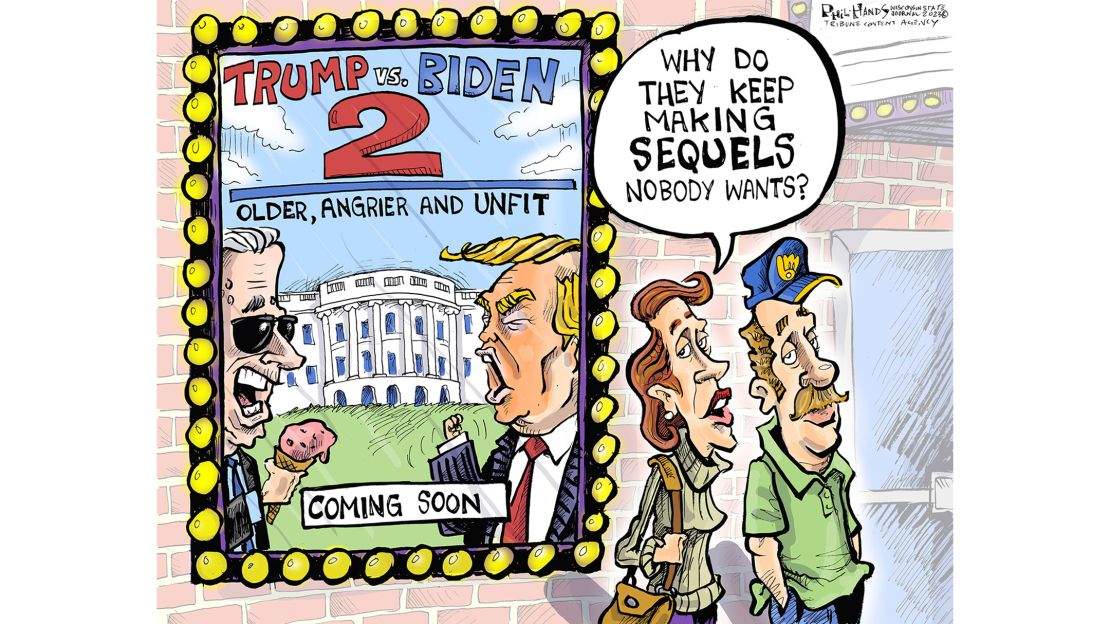
On the Democratic side, wrote Dean Obeidallah, “recent polls tell us that many Americans have questions about the age of the 80-year-old Biden heading into the 2024 election. … That’s why it was an inspired move by Biden to address the issue head-on at the White House Correspondents’ Association Dinner — but with a delightfully comedic touch.”
Biden faces a major challenge Thursday with the expiration of Title 42, a Trump-era policy that has clamped down on immigration along the southern border. Patrick T. Brown wrote that “Border personnel will likely be faced with either operating the kinds of overcrowded facilities that the Trump administration was repeatedly criticized for, or potentially releasing migrants into the country with no court date and no guarantee they’ll be found again. Either option spells political trouble.”
Will debates be among the highlights of the 2024 campaign, as in past elections? Julian Zelizer noted that Trump has said he might skip some of the early encounters, and Democrats are not scheduling any primary debates. “Trump has very little incentive to debate, especially since he can command plenty of attention with his campaign events and social media outbursts. And if he continues to poll well above his opponents, he won’t feel the need to grant them opportunities to gain more exposure,” wrote Zelizer. “Biden, meanwhile, would rather focus on showing he can govern, as opposed to engaging in verbal combat, which has never been his forte.”
The youth vote
In Wisconsin’s election last month for a pivotal state Supreme Court seat, Debra Cleaver’s nonprofit VoteAmerica reached out to students on 24 campuses, placing ads, tacking up posters and partnering with student influencers. “All these communications channels combined to share a simple message: Election Day was April 4.”
Youth turnout soared, Cleaver wrote. “The city of Eau Claire’s Ward 20, which covers the upper campus of the University of Wisconsin-Eau Claire, saw the highest turnout in all of Eau Claire’s 77 voting wards, with votes up more than 400% over a state Supreme Court election just four years earlier. … For VoteAmerica, this seemed like a clear win for democracy.”
Not everyone has been pleased by the rise in student voting, with some taking action to make it harder for young people to cast their ballots. “Around the country, Republican-controlled states are targeting the youth vote, with a particular focus on college voters — even though voting, and voting access, should not be seen as partisan issues,” Cleaver observed.
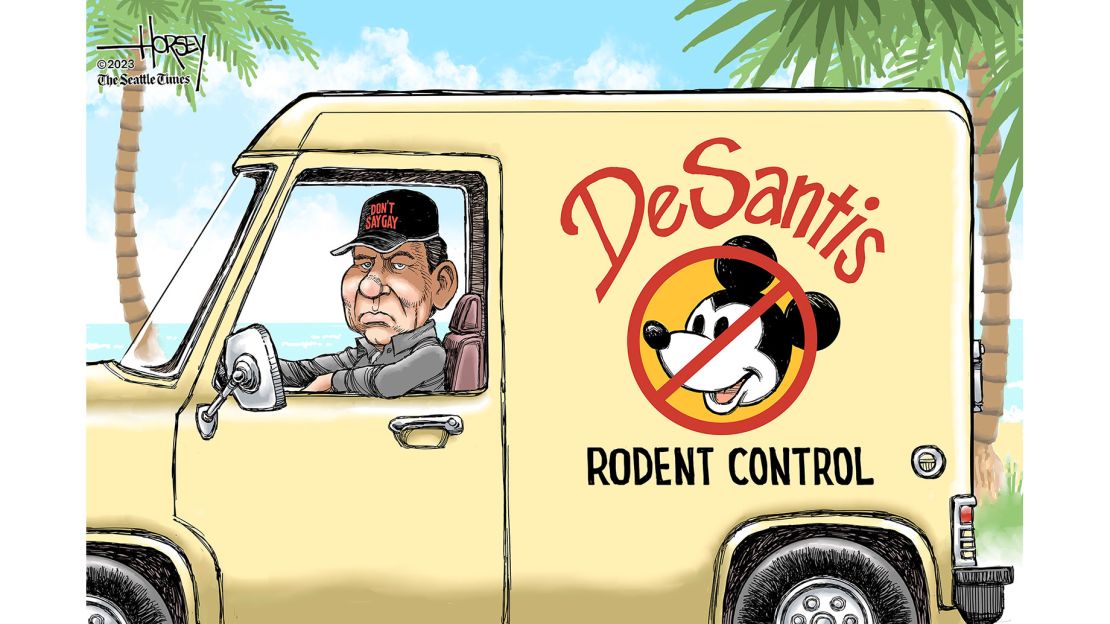
A breakdown in society
A mass shooting in Cleveland, Texas, led to a four-day manhunt that ended Tuesday. As Sara Stewart wrote, the alleged shooter “was taken into custody on charges of fatally shooting five people. The killings allegedly took place after the suspect was asked to stop firing his gun outside near a neighbor’s home to avoid waking a child.”
Stewart recalled “the time my husband and I asked our then-next-door neighbors to stop shooting at songbirds in the backyard. What happened next? Well, they stopped. That evening, one of them even surprised us by coming by to apologize.”
“But when the response to asking someone not to shoot an AR-15 at 11 at night, near other people’s houses, while a baby is sleeping, might be mass murder? I’m not sure how we move forward from that.”
Crowning moment
The leaders of the Church of England saw it as an egalitarian move – replacing the traditional pledge of allegiance that only a select few make to a new king with an invitation allowing anyone to swear fealty to King Charles III.
It didn’t come across as intended, wrote Laura Beers. “To many of the King’s subjects in Britain and abroad, the invitation (no one will be required to give the pledge) has struck a tone-deaf chord.” The notion wasn’t viewed in the same way as the US pledge of allegiance recited by children every school day.
That pledge “is to a republic. For British spectators, and particularly for younger viewers whose views about the future of the monarchy are uncertain or conflicted, the significance of the coronation is more complex.”
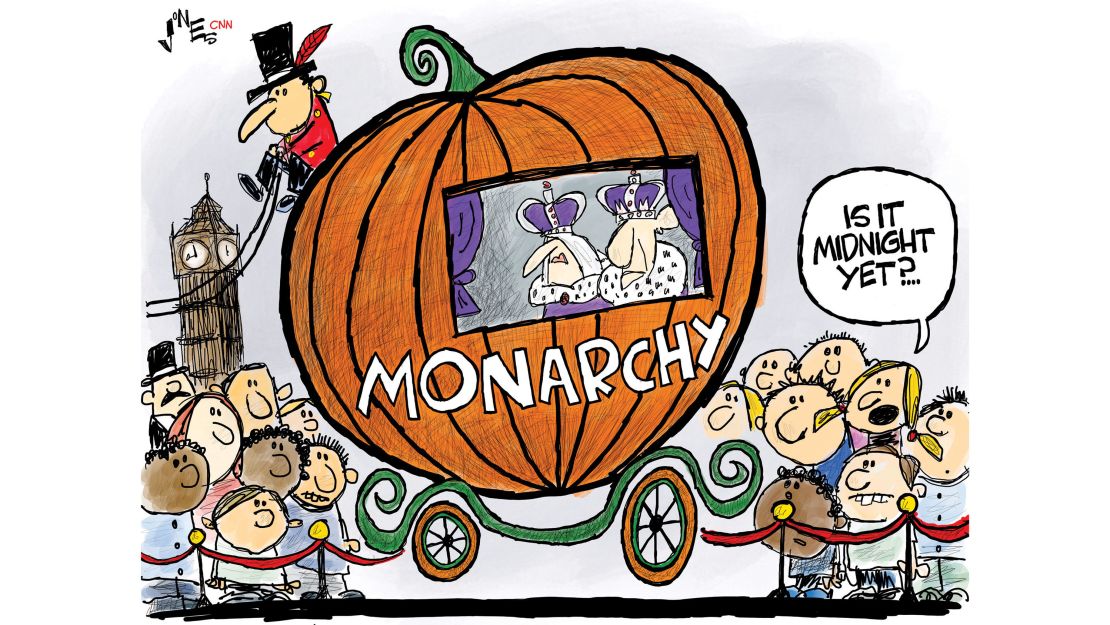
“That complexity cannot simply be smoothed away by inviting people to pledge allegiance to the crown.” (Responding to the outcry, the Church of England gave people the option of saying instead, “God save King Charles.”)
The oil that was used to anoint the king has an ingredient that harks back to a little-known part of his family history – the role played by his paternal grandmother Princess Alice in hiding a Jewish family from the Nazis during the German occupation of Greece in World War II. As Richard Hurowitz wrote, some of the olives used to produce the oil were harvested from the Monastery of Mary Magdalene, where Princess Alice is buried.
“In 1993, Alice was given the high honor of being named a Righteous Among the Nations by the Yad Vashem Holocaust memorial in Israel for her heroism. The fate of the Greek Jews was among the worst in Europe, with more than 90% perishing. Were it not for Alice, the Cohens would surely have been among them.”
The jeweled gold crown that was placed on the head of King Charles III Saturday traces its history back to 1661. It was modeled on an even older one, which was melted down when the monarchy was briefly abolished during the English Civil War.
The unfortunate monarch who was the last to own the original St. Edward’s Crown, King Charles I, was convicted of treason and beheaded on January 30, 1649. Moments before he was executed, he told the crowd, “I go from a corruptible to an incorruptible crown; where no disturbance can be, no disturbance in the world.”
Well-wishers at yesterday’s coronation cheered Charles, who can anticipate a much less tumultuous reign than that of the first king of his name.
Other views on the coronation:
Sunder Katwala: This former republican will be tuning into the king’s coronation
Graham Smith: We want a choice instead of Charles
Economy jitters

US Treasury Secretary Janet Yellen warned last week that the US might have to default on its debts by the beginning of June unless Congress raises the debt limit. Jacob J. Lew, who held that job during the Obama administration, wrote, “The risk of defaulting on America’s debt is even greater today than it was in 2011, when I was director of the White House Office of Management and Budget, and in 2013, when I was secretary of the Treasury. Washington is even more polarized, and House Republicans’ demands are more extreme. The House passed a bill last month that they know is unacceptable to both the Senate and the White House, yet some House Republicans say that they will not support a less extreme final bill.”
“This is not an economic crisis; it is a manufactured political crisis,” Lew wrote.
There is an economic crisis – but it involves the finance industry. Small banks are getting squeezed by the fear companies have of losing deposits in a bank run. So far regulators have protected deposits above the $250,000 cap, but there’s no guarantee that will continue. To avoid the continued rise of megabanks such as JP Morgan Chase, law and finance professor Robert Hockett advocates lifting the cap on deposit insurance.
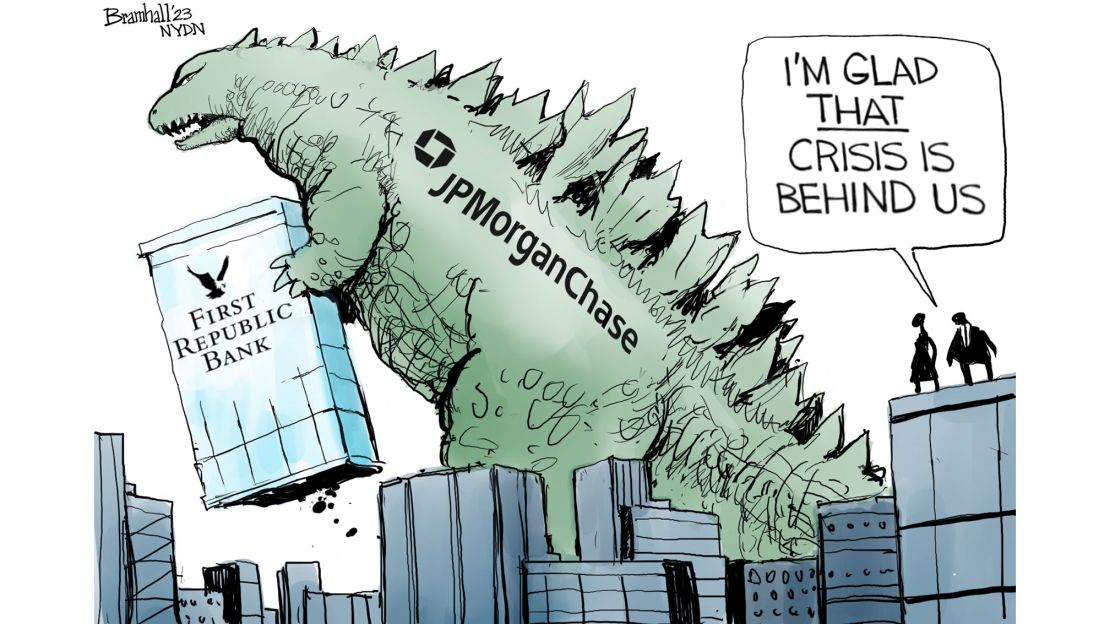
“The only alternative, as we watch small bank deposits continue their exodus to JP Morgan CEO Jamie Dimon’s welcoming Wall Street arms, is an economy with one or two megabanks more excited by short-term speculative profits on global capital markets than by steadily rebuilding America one sector and region at a time.”
For more:
Mark Zandi: It makes no sense for the Fed to raise interest rates this week
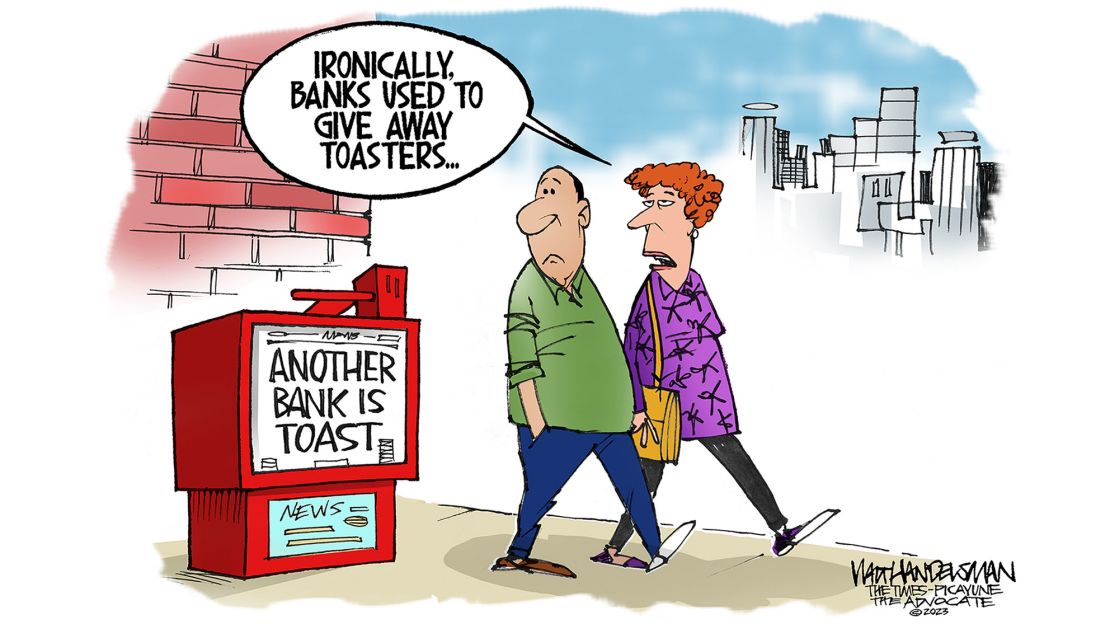
Don’t miss
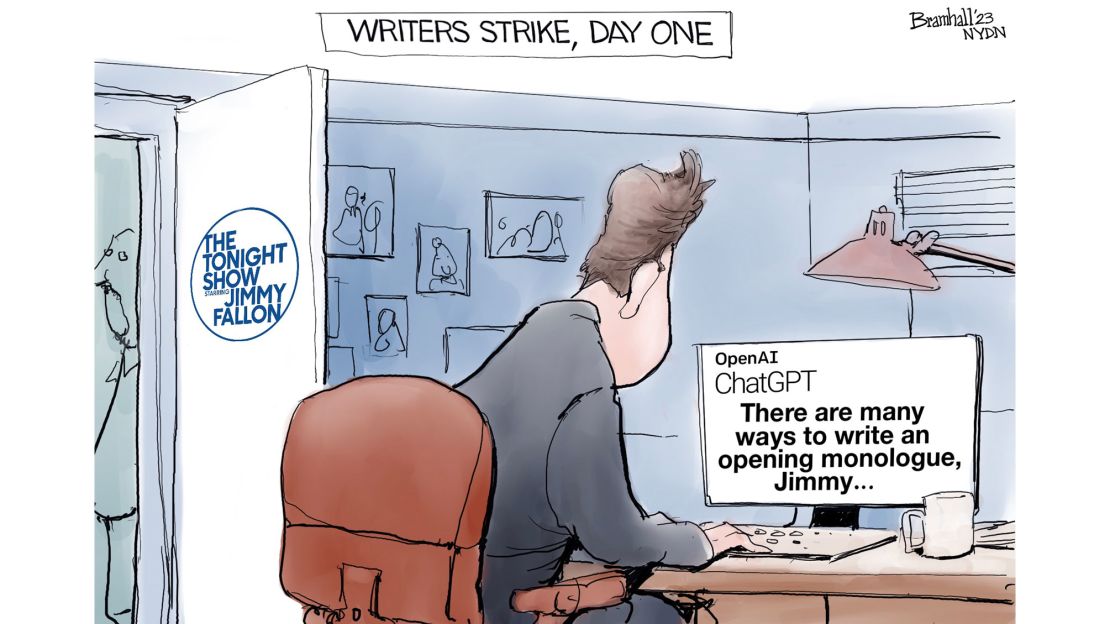
Jill Filipovic: Your favorite show may be about to go dark, but there’s a good reason for it
Sophia A. Nelson: Now Emmett Till’s accuser will never be brought to justice
Sara Stewart: This good-hearted movie makes for a hell of a battle cry
SE Cupp: If you’re feeling anxious, sad, lonely or hopeless, you’re not alone
Kimberly Seals Allers: When addressing maternal mortality, ‘we must leave no Black woman behind’
Sian Beilock, Christina Paxson and Gilda A. Barabino: America’s huge investment in the future can’t work without women and people of color
Henry Nicholls: Let pandas be pandas instead of diplomatic trophies
AND…
College cost surprise
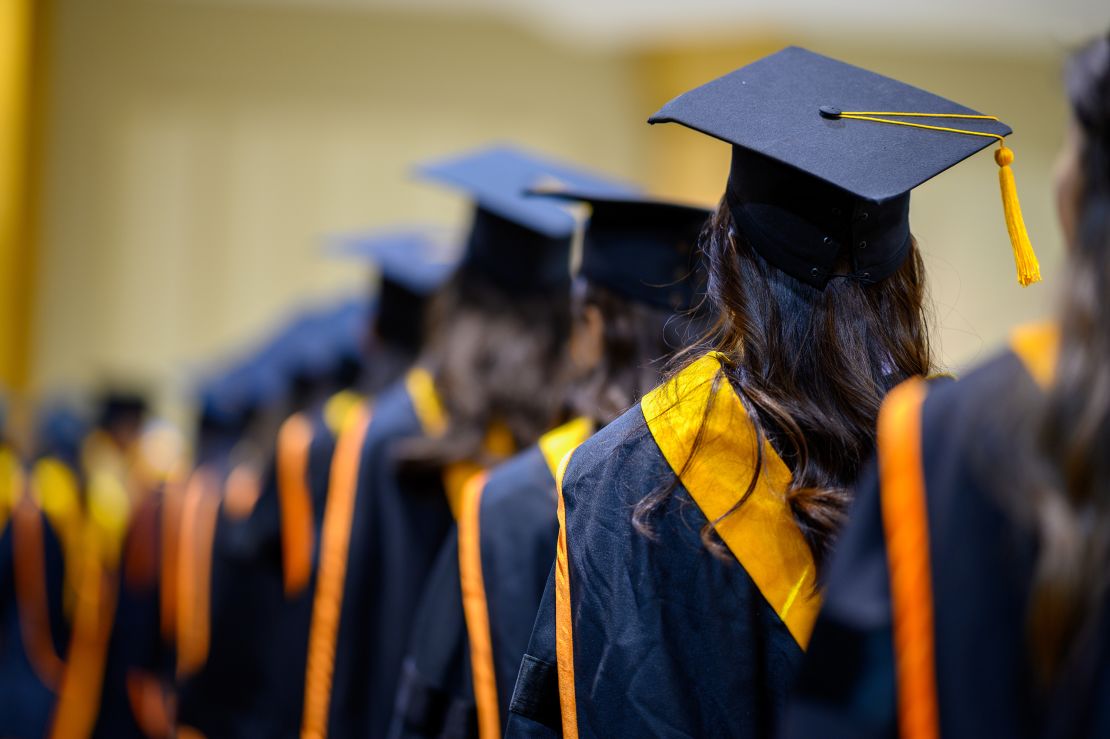
College costs are rising, right? That bit of conventional wisdom may actually be misleading, according to Phillip Levine, an expert on higher education finance.
“The ‘sticker price’ of college has almost tripled over the past 40 years,” Levine wrote. “How many students can afford $30,000 to attend a public four-year institution, let alone more than $80,000 to attend an elite private institution?” Levine, who has has done some new research into the reality behind those numbers, points out that only students from higher-income families pay the sticker price.
“Most students receive financial aid and pay less than that, often considerably less. And the amount they pay is actually falling, not rising. Still, lower-income students at most institutions are asked to pay much more than they can afford. That is the problem we need to solve.”
